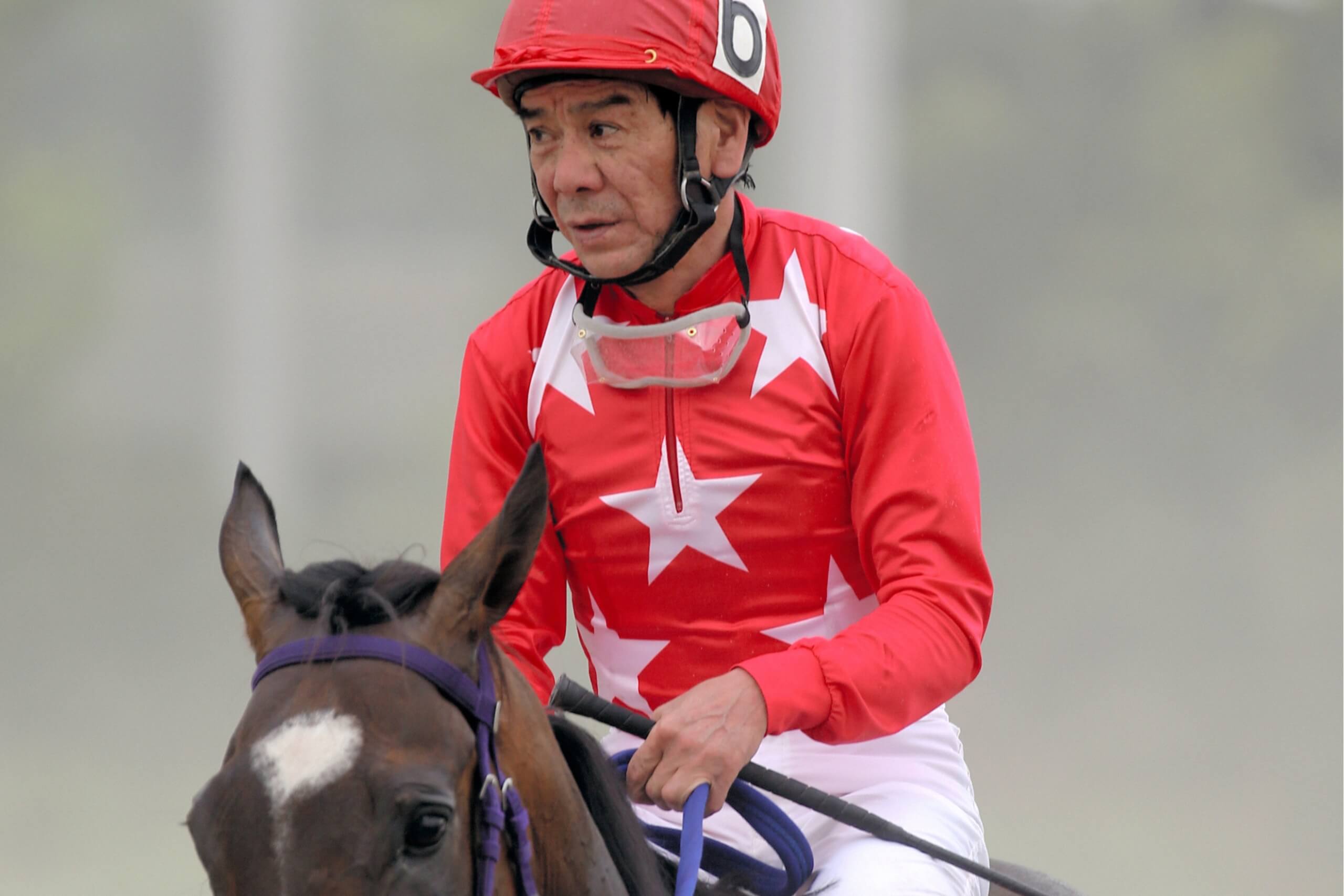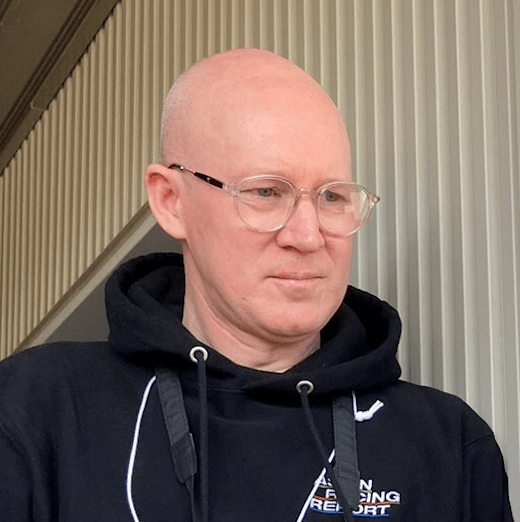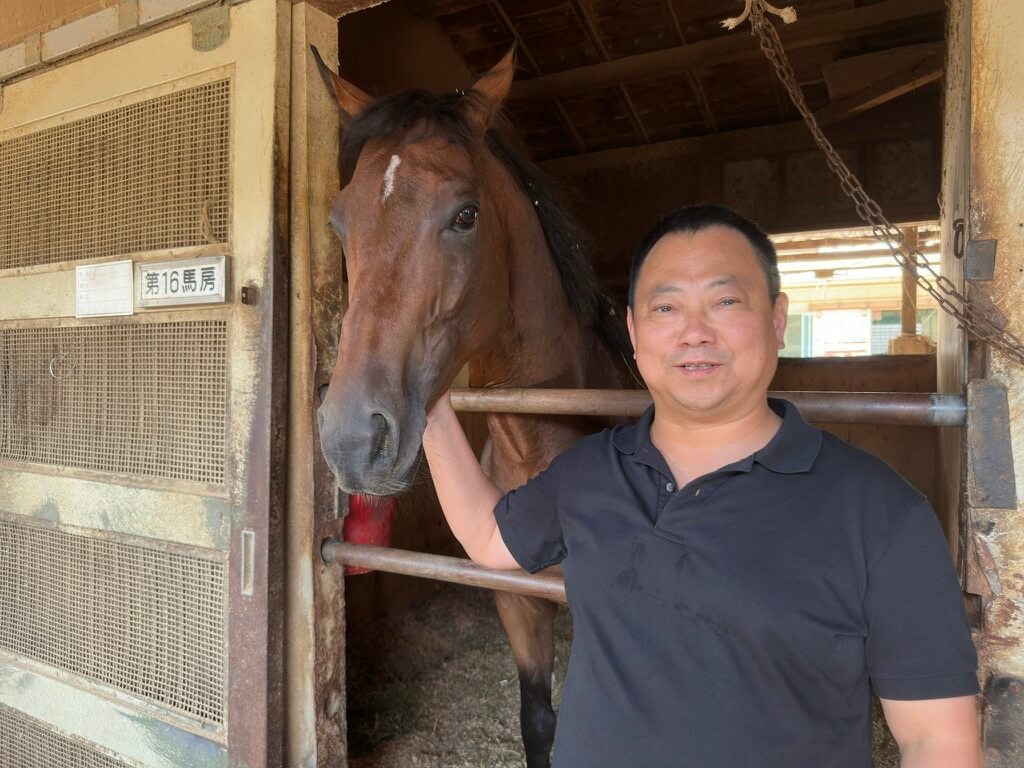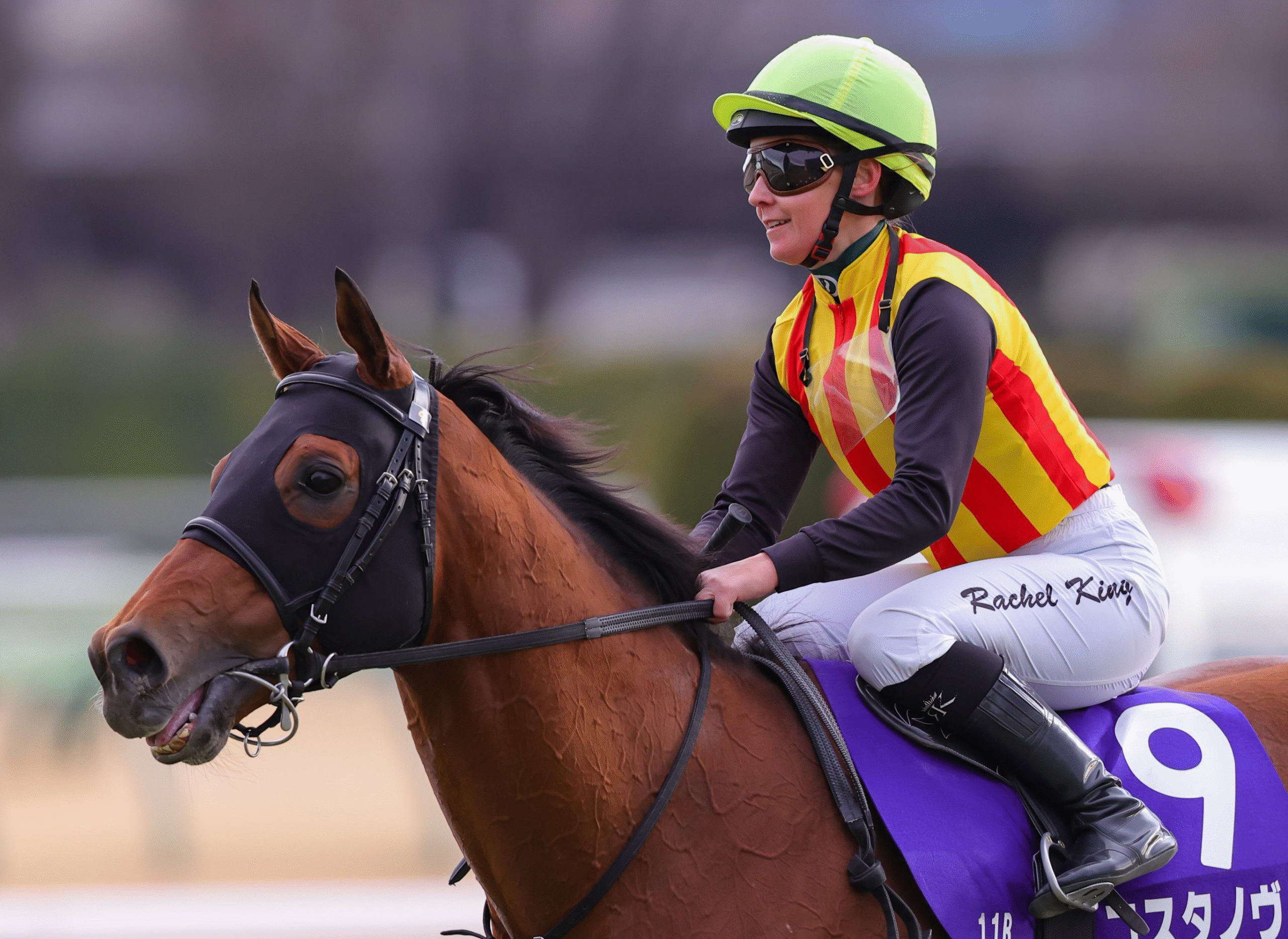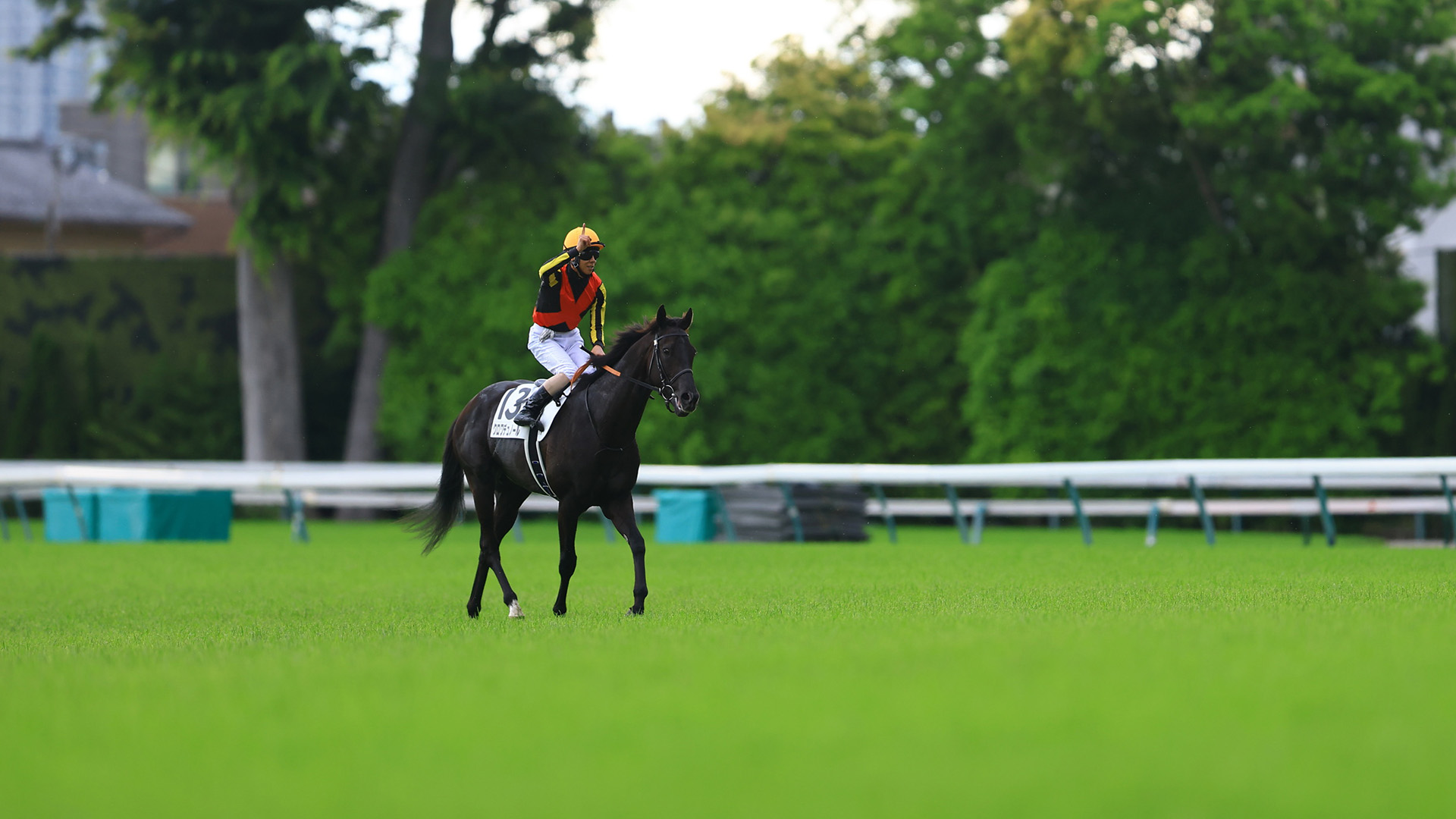It was on Valentine’s Day that Fumio Matoba finally broke off one of the longest love affairs in racing history: since 1973 he had been going out to race-ride at Oi racetrack in Tokyo’s Shinagawa area of Tokyo, but on February 14, 2025, at age 68, he announced his ‘dream’ career is over.
Matoba has not ridden in a race since the third contest at Oi on July 8 last year, and that one-off ride came five months after his last full day of race-riding, February 13, 2024.
A statement on Oi’s Tokyo City Keiba (TCK) website informed the world that the iconic ‘Emperor of Oi’ will hang up his famous red silks with scattered white stars and retire officially on March 31. Jockeys on the NAR (National Association of Racing) – the local council administered circuit on which Matoba made his legend – wear their own distinguishing silks in every race, rather than the colours of a horse’s owner.
His have long been a conspicuous focal point around Oi: they’re on the walls, they’re made into merchandise, and they’re on a mannequin encased in glass – a shrine-like display in one of the track’s food halls – beside a signed picture, and a poster congratulating one of many of Matoba’s achievements. But they will not be seen on horseback again.
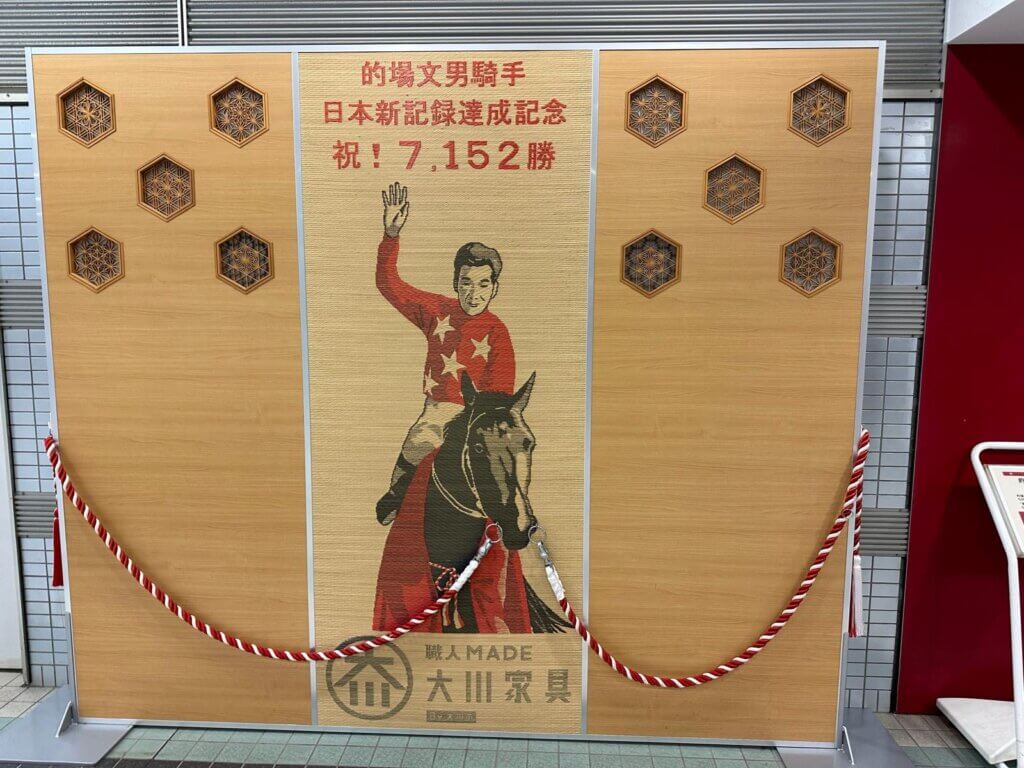
“To be honest, I still want to ride,” he said. “But I injured my knee in February last year and although I did resume riding once, I was not able to ride as well as I wanted, probably due to the effects of my knee. I began to feel physically limited, so I have decided to end my career as a jockey.”
His devoted fans will have to move on. To those, he said: “Your warm support has given me strength and has supported me. I will now walk a new path, but I will keep your support in my heart and do my best in the next stage (of life).”
The frailties of an aging frame, it seems, at last caught up with Matoba whose later seasons in the saddle were famous for the ‘Matoba Dance,’ a unique method that he had no choice but to develop if he was to ride out a finish with any effect once his body had lost the suppleness of his younger days: his upper torso rigid, more upright than his competitors, bouncing up and down, arms thrusting and weaving with ungainly determination.
As he once explained, “My body turned stiff,” so the Matoba Dance evolved.

Matoba’s career was phenomenal. Japan’s oldest active jockey, he also holds the record for most wins, 7,424, and most rides, 43,497, on the NAR dating back to the first, a fifth-place in race five at Oi on October 16, 1973. His first win, at the same track he would make his own, came a few weeks later on November 6.
Perhaps his standout victory was Concert Boy’s triumph in the storied Teio Sho of 1997 – the first time it was designated a domestic Grade 1 – in which he defeated the great JRA legend Yutaka Take. He won the same race on Bonneville Record in 2007 and Hashiru Shogun in 1993. His majors also included the 1986 Tokyo Daishoten, six wins in the Haneda Hai and eight in the Tokyo Kinen. But the one that always got away was the Tokyo Derby in which fortune never favoured Matoba: he was second in the race 10 times.
Matoba’s childhood home was Okawa City, Saga, on the island of Kyushu in Japan’s far south. His older brother was a jockey at Saga and he wanted to follow in his footsteps, but his brother advised him, “If you want to become a jockey then go elsewhere,” to find better rewards. Matoba chose Tokyo and Oi racecourse, which he had once visited with his parents as a child. He made the move in 1971 and was apprenticed to trainer Yoshihisa Kogure, a man renowned as a jockey mentor.
Matoba’s influences as a rider were the great jockey-turned trainer Kiyomatsu Akama and Takemi Sasaki. It was Sasaki who held the record for most wins at 7,151 until Matoba surpassed it on August 12, 2018 at age 62.
Matoba was the leading rider at Oi for the first time in 1983 with 129 wins and it was not long before he was dominant, forging his imperious status as the undisputed number one around the sandy oval; he topped the standing for 20 years straight, from 1985 to 2004. In 2002 he was, for the first time, the NAR’s leading rider nationally with 363 wins that year; he backed that up with another national title in 2003 with a haul of 335 wins.
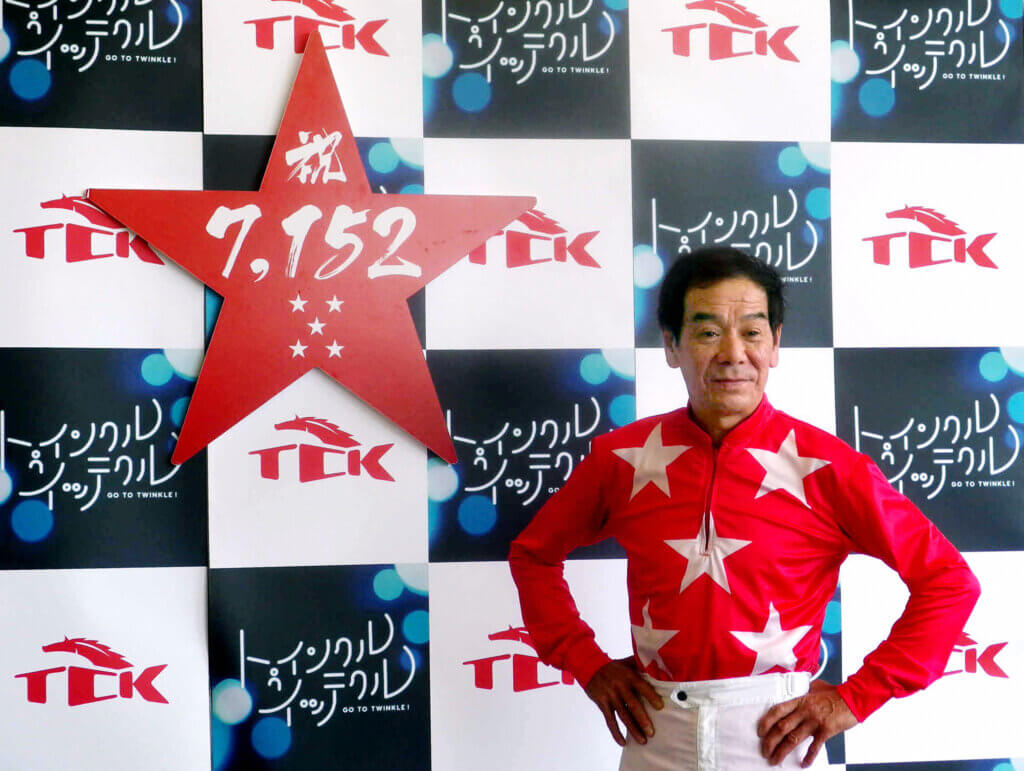
He rode four winners on the central JRA (Japan Racing Association), the last of those at Nakayama in March 2004, and competed in the JRA’s World All-Star Jockeys series in 2009 and 2019, but unlike former NAR champions Katsumi Ando, Hiroyuki Uchida, Yasunari Iwata, and Keita Tosaki, the opportunity to make that move across to the top tier never came his way.
There was controversy at times, he was suspended for two days after returning to the races drunk on December 30 2017; and right at the end, he was sanctioned by the NAR for an incident on July 6, two days before his final ride, after he was found to have taken money from a fellow jockey. The NAR accepted his apology.
But while Matoba has his human flaws, he is still revered by his fans and respected widely for what he has accomplished, a recipient of the prestigious Yellow Ribbon Medal award, presented to those in Japanese society who ‘through their diligence and perseverance have become public role models.’
He will be remembered as a legend: a skilled rider in his prime, as well as hard, committed, rugged, and tough. His longevity has been phenomenal, his achievements remarkable, and he retires as one of the most iconic figures in Japan’s racing history ∎
